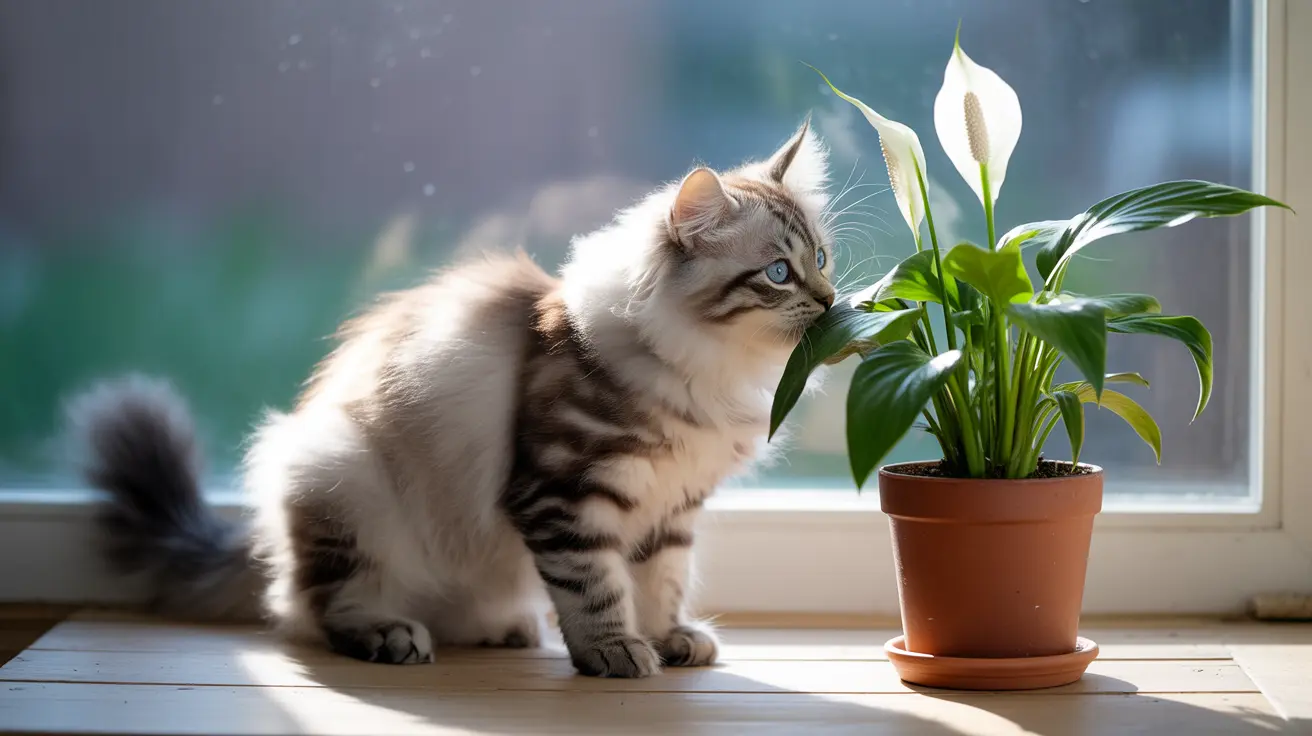If you're a cat owner and plant enthusiast, you need to be aware of the potential dangers that angel plants pose to your feline friends. These popular houseplants, including those sold under the Exotic Angel Plants brand, can be toxic to cats and cause serious health issues if ingested.
In this comprehensive guide, we'll explore which angel plants are dangerous for cats, what symptoms to watch for, and how to create a safe environment for your pet while still enjoying indoor greenery.
Understanding Angel Plants and Their Toxicity
Angel plants encompass various species, with many falling under the Exotic Angel Plants brand, which includes over 400 different houseplant varieties. Unfortunately, numerous plants in this category contain substances that can be harmful or even lethal to cats.
Common Toxic Angel Plant Varieties
Several popular angel plant varieties pose significant risks to cats:
- Peace Lily (contains insoluble oxalates)
- Philodendron (contains calcium oxalate crystals)
- Dieffenbachia (contains insoluble oxalates)
- Pothos (contains calcium oxalate crystals)
- Snake Plant (contains saponins)
Recognizing Signs of Angel Plant Poisoning
If your cat has ingested a toxic angel plant, you may notice these symptoms:
- Drooling and pawing at the mouth
- Vomiting and diarrhea
- Difficulty swallowing
- Lethargy and weakness
- Loss of appetite
- Oral irritation and swelling
Severe Symptoms Requiring Immediate Care
Some cases can lead to more serious complications:
- Severe respiratory distress
- Kidney failure
- Seizures
- Heart arrhythmias
- Collapse
Emergency Response and Treatment
If you suspect your cat has ingested any part of an angel plant:
- Remove any plant material from your cat's mouth if possible
- Collect a sample of the plant for identification
- Contact your veterinarian or pet poison hotline immediately
- Monitor your cat's symptoms and vital signs
- Do not induce vomiting unless specifically instructed by a professional
Prevention and Safe Alternatives
To protect your cats while maintaining an attractive indoor garden:
- Research all plants before bringing them home
- Choose cat-safe alternatives like spider plants or Boston ferns
- Keep toxic plants completely out of reach
- Consider artificial plants for high-risk areas
- Create designated "cat gardens" with safe plants
Frequently Asked Questions
Are all angel plants toxic to cats, and how can I identify safe ones?
Not all angel plants are toxic, but many popular varieties are. The best way to identify safe options is to consult the ASPCA's toxic plant database or speak with a veterinarian. Always research specific plant species before purchase.
What are the most common symptoms of angel plant poisoning in cats, and when should I seek veterinary care?
Common symptoms include drooling, vomiting, oral irritation, and lethargy. Seek immediate veterinary care if you witness your cat eating any part of an angel plant or showing these symptoms.
How can I protect my cat from angel plant poisoning, and what are some non-toxic alternatives?
Remove toxic plants from your home or place them in completely inaccessible areas. Safe alternatives include spider plants, African violets, and Boston ferns. Creating a designated cat garden with cat grass can also help satisfy their plant-chewing instincts.
What is the difference between angel plants and angel's trumpet, and how toxic are they to cats?
Angel's trumpet (Brugmansia) is distinct from angel plants and is extremely toxic to cats, containing dangerous tropane alkaloids. While both can be harmful, angel's trumpet is particularly dangerous and can cause severe neurological symptoms or death.
If my cat ingests a toxic angel plant, what first aid steps can I take before rushing to the veterinarian?
Remove any remaining plant material from your cat's mouth, save a sample for identification, and contact your vet immediately. Don't attempt home remedies or induce vomiting without professional guidance, as this could worsen the situation.
Remember, when it comes to your cat's safety, it's always better to err on the side of caution. If you're unsure about a plant's toxicity, keep it out of your home or opt for confirmed pet-safe alternatives.






